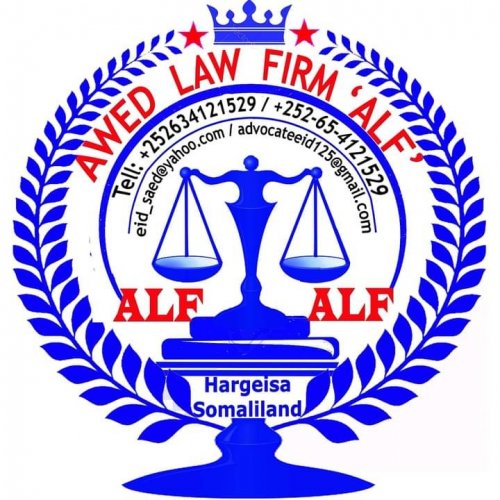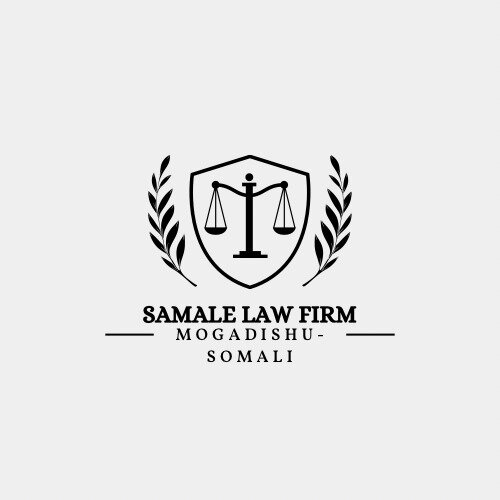Best Civil Rights Lawyers in Somalia
Share your needs with us, get contacted by law firms.
Free. Takes 2 min.
Or refine your search by selecting a city:
List of the best lawyers in Somalia
About Civil Rights Law in Somalia
Civil rights in Somalia are governed by a combination of the nation's constitution, customary practices, and Islamic Sharia law. The Somali constitution underscores the fundamental rights and freedoms of individuals, emphasizing equality and non-discrimination. However, due to ongoing political instability and insecurity, the enforcement of these rights can be inconsistent. Civil rights issues often pertain to freedom of speech, gender equality, and protections against discrimination. The complex legal environment can make it challenging for individuals to fully realize their rights and seek justice when those rights are violated.
Why You May Need a Lawyer
There are several situations where individuals may require legal assistance related to civil rights in Somalia. These include: facing discrimination based on clan, gender, or ethnicity; being subject to arbitrary detention or unlawful arrests; experiencing violations of freedom of speech or media censorship; dealing with cases of gender-based violence; and needing help navigating the complexities of the legal system to enforce individual rights. A lawyer can help individuals understand their rights, provide legal representation, and assist in taking appropriate legal actions to protect and enforce those rights.
Local Laws Overview
The legal framework in Somalia is a blend of statutory, customary, and Sharia law. The Provisional Constitution of 2012 provides for fundamental civil rights, such as equality before the law, freedom of association, and protection from torture and unlawful detention. However, enforcement mechanisms and judicial processes can be weak. Customary law (Xeer) and Sharia heavily influence day-to-day legal practice, which can sometimes lead to conflicts with constitutional principles, particularly concerning gender equality and clan-based discrimination. Organizations working within Somalia continue efforts to harmonize these different legal systems to improve the protection and promotion of civil rights.
Frequently Asked Questions
What are civil rights?
Civil rights are the rights of individuals to receive equal treatment and be free from unfair discrimination in various settings, including employment, education, and access to public spaces.
Is freedom of speech protected in Somalia?
Yes, the Somali constitution guarantees freedom of speech and expression, but these rights are often restricted due to security concerns and media censorship, particularly in relation to criticism of government policies.
What should I do if I face discrimination?
It is advisable to document the incidents of discrimination and seek legal counsel to understand your rights and the potential courses of action available under Somali law.
How can women protect their civil rights in Somalia?
Women can protect their rights by engaging local advocacy groups, seeking support from NGOs working on gender issues, and obtaining legal advice to navigate the complex interplay of customary and statutory laws.
Are there protections for ethnic minorities in Somalia?
While the constitution affirms equality, ethnic minorities often face discrimination. Legal protection requires advocacy and potentially engaging with human rights organizations focused on these issues.
Can civil rights cases be tried in Somali courts?
Yes, civil rights cases can be brought before Somali courts, but the complex judicial system and influence of non-statutory laws can pose challenges in seeking justice.
What is the role of customary law in civil rights?
Customary law (Xeer) plays a significant role in local dispute resolution but may not always align with the constitutional protections of civil rights, particularly in matters of gender and clan disputes.
How does Sharia law impact civil rights in Somalia?
Sharia law influences various aspects of civil life in Somalia, particularly family and personal status issues. It can sometimes conflict with constitutional ideals, particularly in gender-related rights.
What recourse is available for wrongful detention?
Individuals who believe they have been wrongfully detained should seek legal assistance to challenge the detention and ensure compliance with constitutional protections against unlawful deprivation of liberty.
Are there any human rights organizations in Somalia?
Yes, there are several NGOs and international organizations working to protect and promote human rights in Somalia. They can offer support, education, and advocacy services.
Additional Resources
For further assistance, consider reaching out to:
- The Somali Human Rights Association (SOHRA)
- United Nations Assistance Mission in Somalia (UNSOM)
- Legal aid clinics and nonprofit organizations offering free or low-cost legal assistance
- Local civil society organizations focused on gender equality and minority rights
Next Steps
If you need legal help regarding civil rights in Somalia, start by consulting with local legal professionals who specialize in civil rights law. Engage with non-profit organizations that may offer resources or legal aid. Document any incidents related to the violation of your rights thoroughly and seek guidance on how to pursue legal action effectively. Finally, leverage any available community support systems or advocacy networks to strengthen your case and ensure your rights are protected.
Lawzana helps you find the best lawyers and law firms in Somalia through a curated and pre-screened list of qualified legal professionals. Our platform offers rankings and detailed profiles of attorneys and law firms, allowing you to compare based on practice areas, including Civil Rights, experience, and client feedback.
Each profile includes a description of the firm's areas of practice, client reviews, team members and partners, year of establishment, spoken languages, office locations, contact information, social media presence, and any published articles or resources. Most firms on our platform speak English and are experienced in both local and international legal matters.
Get a quote from top-rated law firms in Somalia — quickly, securely, and without unnecessary hassle.
Disclaimer:
The information provided on this page is for general informational purposes only and does not constitute legal advice. While we strive to ensure the accuracy and relevance of the content, legal information may change over time, and interpretations of the law can vary. You should always consult with a qualified legal professional for advice specific to your situation.
We disclaim all liability for actions taken or not taken based on the content of this page. If you believe any information is incorrect or outdated, please contact us, and we will review and update it where appropriate.
Browse civil rights law firms by city in Somalia
Refine your search by selecting a city.










